
Sara Arvidson
Sara Arvidson is head of Communications at Örebro University. Apart from this role, Sara is lecturer and teamleader at SIDA (the Swedish International Development Cooperation Agency) in a project for better research communication in Rwanda. She also works for the region of Örebro County in the internationalization project the Person Alfred Nobel.
Sara is also working for the Swedish Research Council as an expert in research communication (at present working on a proposal for a new doctoral education).
With her comprehensive journalistic background, she has worked in both public and private news organisations: head of Consumer News at the national news desk at SVT (Swedish national public service broadcaster), editor of several news programmes at SVT, news anchor at SVT and TV4 and PR consultant in London, UK. In addition to various TV programmes and reportages, she has written the book What makes the news? A study of newsgathering at the BBC.

Jenny Björkman
Jenny Björkman is Director of Collaboration at the Riksbankens Jubileumsfond foundation (RJ), and is responsible for RJ’s science communication, collaboration and public activities. She is an associate professor of history, and previously worked at the e-journal Forskning & Framsteg.
The RJ foundation works to promote humanities and social sciences, and awards 500 million SEK annually to research in these fields.
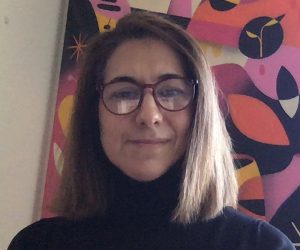
Teresa Cerratto-Pargman
Teresa Cerratto-Pargman, Associate Professor of Human-Computer interaction, Stockholm University, leads the research group Critical Computing at the Department of Computer and Systems Sciences, in the Interaction Design and Learning research unit. She is the Principal Investigator (PI) of Ethical and Legal Challenges in Relationship to AI-driven Practices in Higher Education funded by the WASP-HS program.
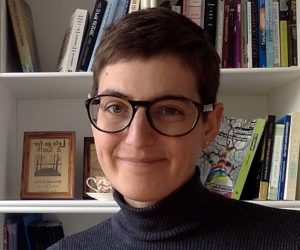
Sarah R. Davies
Sarah R. Davies is Professor of Technosciences, Materiality, and Digital Cultures at the Department of Science and Technology Studies, University of Vienna. Her work explores interactions between science and society, and includes the books Hackerspaces (2017, Polity), Science Communication (2016, Palgrave, with Maja Horst), and Exploring Science Communication (2020, Sage, with Ulrike Felt).
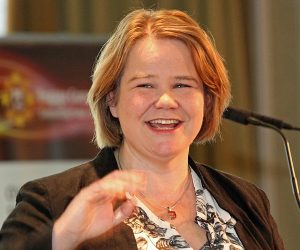
Sophie Duncan
Sophie co-directs the National Co-ordinating Centre for Public Engagement, UK (NCCPE), an organisation that supports universities to engage with society in mutually beneficial ways. She provides strategic direction for the centre, which includes policy work and advocacy; culture change; capacity building; and research. She co-edits Research for All, an international, peer reviewed journal focusing on all aspects of engaged research and is committed to enabling researchers, publics and community organisations to work together to address societally relevant issues. Originally trained as a physicist, Sophie’s career has been focussed on public engagement, with former roles at the Science Museum, NESTA and the BBC, where she led national engagement programmes.
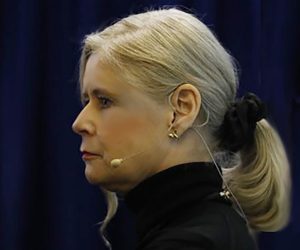
Anna Maria Fleetwood
Anna Maria Fleetwood has almost twenty years of experience in communicating scientific results. She has been responsible for the Swedish Research Council’s strategic direction for communicating research and research findings, to ensure long-term acceptance and understanding of higher education and research. Anna Maria serves on a number of advisory boards and programme committees, both in Sweden and at EU level.

Emma E Engström
Emma E Engström defended her PhD thesis in 2015 at the Department of Sustainable Development, Environmental Science and Engineering (SEED), KTH. She is currently a researcher at the Institute for Future Studies within the theme “The Social impact of New Technologies” in a project funded by WASP-HS where they study and predict the spread of AI with the overall aim of better understanding the social effects of AI technology.
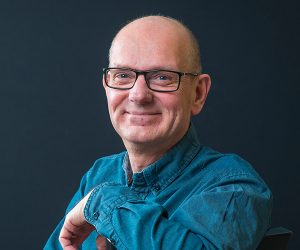
Mikael Hansson
Senior editor, covering news on artificial intelligence, digital innovation, tech and the transformation of society. Communication officer at Umeå University and the AI research program Wallenberg AI, Autonomous Systems and Software Program – Humanities and Society (WASP-HS), founded by Wallenberg Foundations in Sweden.
Many of my daily reports can also be seen in the web magazine Digital Impact North.
Publicity officer at several conferences on AI and computing science. One example is IJCAI, a world leading AI conference, previous held in Stockholm, Sweden, 2018. Author of several books and has worked for many different media outlets, online channels and radio broadcast shows.
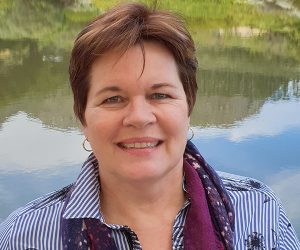
Marina Joubert
Dr Marina Joubert is a science communication researcher at Stellenbosch University in South Africa. She promotes pro-active involvement of researchers in open dialogue between science and society, and the development of evidence-based science communication practice. Her research interests focus on how scientists respond to increasing demands for public engagement, and how scientists can be supported to be more successful when they reach out to communities, youth, policymakers and other audiences. In addition to research, her job involves academic teaching and short training courses.
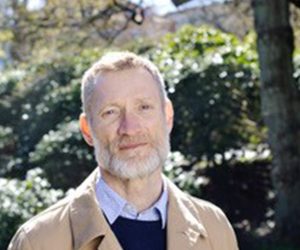
Dick Kasperowski
Dick Kasperowski, Professor of Theory of Science at the University of Gothenburg. His interests include citizen science, governance of science, participatory practices in science and the humanities and open collaborative projects in scientific work. Informed by current perspectives in science and technology studies, the analytical focus of his research concerns how new technologies configure relations and the development of epistemic cultures between actors claiming different experiences and knowledge; how political and scientific representations are related to each other and how (scientific) citizenship is connected to research policy and scientific practices. Lately this interest has translated into studies of the role of large scale digital platforms, AI and ethical boundary work in citizen science.
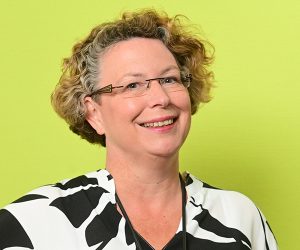
Annette Klinkert
Dr. Annette Klinkert is Executive Director of the European Science Engagement Association, EUSEA (www.eusea.info), an international knowledge-sharing platform for Public Engagement professionals. A main emphasis of this alliance is to inspire innovative science engagement strategies and activities, based on dialogues between researchers, policy-makers, citizens and stakeholders. Annette Klinkert is also founder and CEO of city2science, a German company developing communication approaches connecting scientific institutions with urban and regional development strategies (www.city2science.de). Over the last 15 years, she has initiated and organised a number of large-scale science communication formats across Germany, such as the science festivals GENIALE, WissensNacht Ruhr, FameLab Germany and Maker Faire Ruhr. Based on professional expertise in science communication, public engagement and city management, Annette Klinkert provides expertise in facilitating multi-stakeholder dialogues and co-creative urban and regional development processes. She provides qualified Public Engagement trainings for early career researchers and impact-oriented proposal design for institutions within European funding programs such as HORIZON 2020.
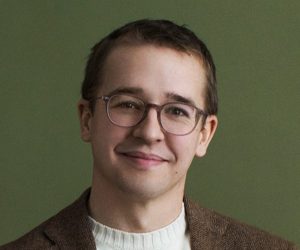
Niklas Laninge
Niklas Laninge is a psychologist and currently Head of the Behavioural Insight Team at the behavioural psychology group PBM. Since 2010, Niklas has helped organisations to implement behavioural science within areas such as communication and product development. He has helped a number of organisations and public agencies to act in ways that are better informed behaviourally.
In addition to this, Niklas has authored three books about implementing behavioural science to create large-scale, sustainable behavioural changes. Nowdays, he most writes about this subject in his weekly newsletter.

Lena Lindhé
Lena Lindhé has many years of experience working with communication and collaboration within the academy. She served for most of the 1990s at Karlstad University, where she worked as a communicator and editor. She currently works strategically with collaboration within University West in Trollhättan, where she was Head of Communications during the years 2000-2007. During the years 2017-2020, Lena has led one of the Vinnova-funded K3 projects, “New Roads for Flexibility in Higher Education – throughout the country”.
Lena is part of the board of the national network UniLink, which brings together 22 Swedish Higher Education Institutions around development, exchange of experience, training and development concerning the HEI’s collaboration and knowledge exchange activities.
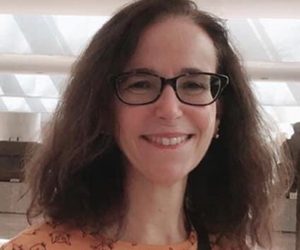
Luisa Massarani
Based in Brazil, Luisa Massarani carries out research and practice in science communication, as well as training. She is Coordinator of the Brazilian Institute of Public Communication of Science and Technology, of the Master of Communication of Science, Technology and Health/Casa de Oswaldo Cruz/Fiocruz and of SciDev.Net/Latin America.
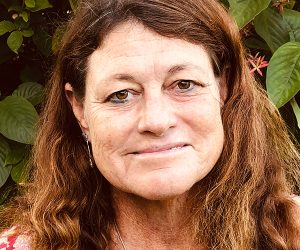
Jenni Metcalfe
Dr Jenni Metcalfe is Founder of Econnect Communication, established in 1995 to help scientists communicate their research. As a science communicator for more than 30 years, she has worked as a journalist, practitioner, university lecturer and researcher. Jenni is a foundation member of the Australian Science Communicators and has been a member of the scientific committee of the International Public Communication of Science and Technology (PCST) Network since 1996. Jenni is a Campus Visitor at the Australian National University’s Centre for Public Awareness of Science. Jenni believes every person has a right to engage with science, so they can make more informed decisions about issues that affect their lives.
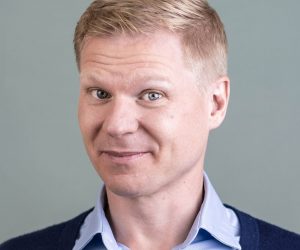
Anders Sahlman
Anders Sahlman is a popular and experienced presentation coach, coaching both researchers and TV stars. He has worked with science communication for more than 15 years, and has made TV appearances as both an actor and a stand-up comedian. He coaches participants in the Researchers’ Grand Prix competition and has been a member of the jury for TV4’s Let’s Dance for three years.
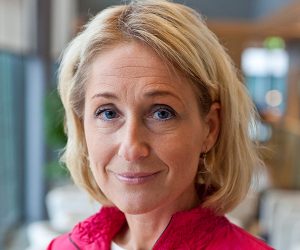
Teresa Palmquist
Teresa Palmquist, is the Unit Manager, Communications Development at the Swedish Civil Contingencies Agency (MSB) and responsible for the
Government’s mandate to MSB relating to coordinated agency information about the COVID-19 emergency. The mandate aims to ensure that the Swedish population is aware of what every individual should be doing to avoid becoming infected themselves, and to avoid infecting others. Every individual shall also feel engaged and motivated to actively and sustainably follow the Government’s recommendations for how we together can reduce the spread of infection.

James Pamment
James Pamment, PhD, is associate professor of Strategic Communication at Lund University and a non-resident scholar at the Carnegie Endowment for International Peace. In addition, he is co-editor-in-chief of the Place Branding and Public Diplomacy journal and a faculty fellow of the USC Center on Public Diplomacy. Prior to joining Carnegie, he was special adviser to the European Centre of Excellence for Countering Hybrid Threats, and senior analyst at the Centre for Asymmetric Threats Studies (CATS), a governmental think tank at the Swedish National Defence University. He has previously held research positions at the University of Texas at Austin, the University of Southern California, and Oxford University.
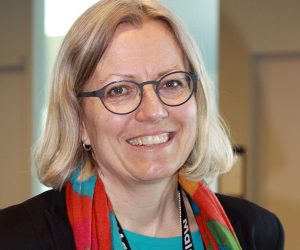
Ingrid Persson
Ingrid Persson, is the Head of Communications at Malmö University. She has long and broad experience of running communications within the public sector, with the last ten years spent in higher education institutions. Ingrid is stimulated by communicating how education and research can contribute to making human existence a little more comprehensible in its context, and how research can contribute to making the world a little bit better.
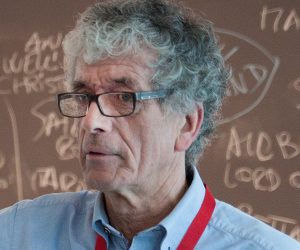
Brian Trench
Brian Trench is a researcher, editor and trainer in science communication, formerly a science journalist, and a lecturer at School of Communications, Dublin City University (DCU), Ireland. He started and ran a Masters in Science Communication at DCU, still going after 25 years. He has given talks and taken part in seminars and conferences in over twenty countries. His published work includes the Routledge Handbook of Public Communication of Science and Technology (1st ed. 2008, 3rd ed 2021), of which he is co-editor with Massimiano Bucchi. He is president of the international PCST (Public Communication of Science and Technology) Network, 2014-2021.
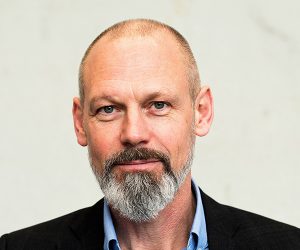
Kenneth Wall
Kenneth Wall is the Head of Communications at Södertörn University. He has long experience of working with communications within politically governed public organisations, with nearly ten years within higher education.
Kenneth worked as director of communications within Axfood and Ambea, and within Region Stockholm, including as head of communications at Södersjukhuset Hospital.

The Forum for Research Communication is organised by the Swedish Research Council for Health, Working Life and Welfare, the Swedish Research Council and Vinnova, together with Mistra, the Ragnar Söderberg Foundation, the Swedish Foundation for Humanities and Social Sciences, the Swedish Foundation for Strategic Research, the Knut and Alice Wallenberg Foundation, and Public & Science, in collaboration with the International Science Festival.
